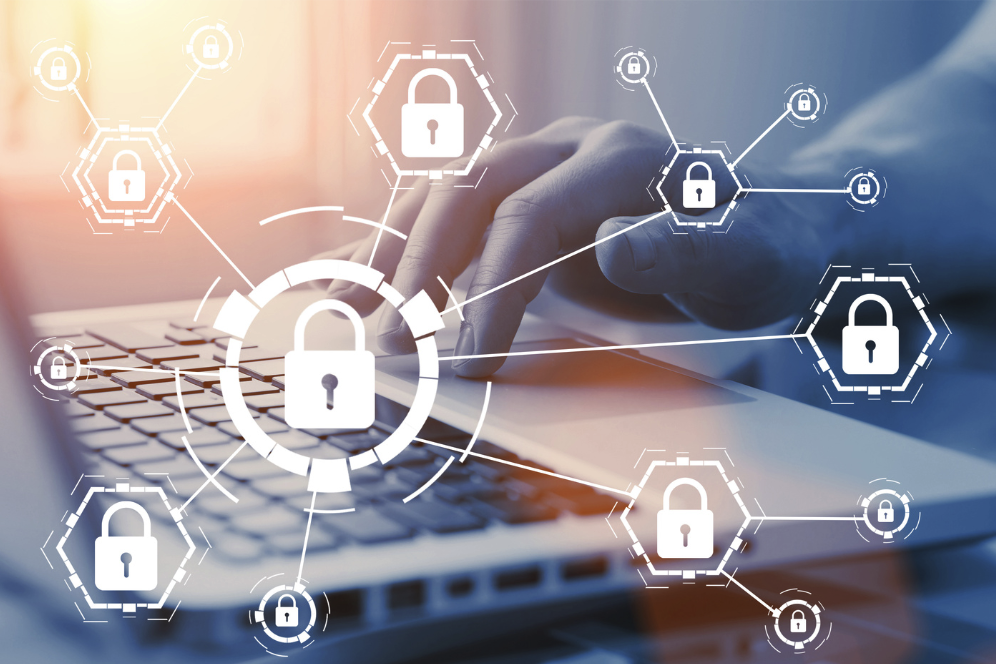In today’s digital age, being a blogger, influencer, and entrepreneur means living a significant portion of your life online. From managing multiple websites and businesses to engaging with followers on social media platforms, the internet has become an integral part of our professional and personal lives. However, with increased online activity comes the need for heightened privacy protection.
As someone deeply immersed in the online sphere, I’ve recognized the importance of safeguarding my digital footprint, including my IP address and personal information. The realization dawned on me after extensive research and firsthand experiences navigating the vast landscape of the internet.
With the proliferation of cyber threats and privacy concerns, I began exploring various tools and strategies to fortify my online security. Among the plethora of options available, one solution stood out as particularly potent: a Virtual Private Network (VPN).
A VPN serves as a shield, encrypting internet traffic and routing it through secure servers, thereby masking the user’s IP address and location. This not only enhances privacy but also bolsters security, making it significantly more challenging for hackers, advertisers, or other prying eyes to track or intercept sensitive data.
As a business blogger and influencer, I know how important it is to protect my brand and ensure the security of my online presence. The internet can be a vast and unpredictable space, filled with potential threats that can harm your reputation and compromise your hard work. That’s why I want to share with you a powerful tool that has helped me safeguard my brand: NordVPN.
NordVPN is a cutting-edge virtual private network (VPN) that offers advanced security features to keep your online activities private and secure. With its military-grade encryption and anonymous browsing capabilities, your sensitive information and online footprint remain hidden from prying eyes.
But it’s not just about protecting your brand from external threats. NordVPN also allows you to maintain full control over your online presence. As a business blogger and influencer, it’s crucial to have the freedom to create, share, and engage with your audience without the fear of being monitored or compromised.
With NordVPN, I’ve gained peace of mind, knowing that my brand and online persona are secure. I can focus on what matters most: providing valuable content to my readers and growing my business. Whether I’m working from home, a coffee shop, or traveling the world, NordVPN ensures that my connection is encrypted and my identity protected.
Furthermore, as someone with a diverse online presence spanning multiple websites and ventures, the versatility of a VPN proves invaluable. With the ability to mask my IP address and access geo-restricted content, I can navigate the digital landscape with greater freedom and flexibility, unhindered by arbitrary restrictions or invasive tracking mechanisms.
Don’t leave your brand’s security to chance. Join me in safeguarding your online presence with NordVPN. Take control of your brand, protect your business, and enjoy the peace of mind that comes with knowing your online activities are secure.
Key Takeaways:
- Protect your brand and online presence with NordVPN.
- NordVPN offers advanced security features, including encryption and anonymous browsing.
- Ensure your online activities remain private and secure.
- Maintain control of your brand and engage with your audience without fear of monitoring or compromise.
- Safeguard your brand whether you’re working from home or traveling the world.
Protecting Yourself from Targeted Advertising
If you want to protect yourself from targeted advertising, there are several steps you can take.
- Using ad blockers can help prevent targeted ads from appearing on your devices.
Ad blockers are browser extensions or applications that block advertisements from loading on web pages you visit. By blocking ads, you can avoid being targeted with personalized advertisements based on your browsing history or interests.
- You can also use a VPN to encrypt your internet connection and hide your IP address, making it more difficult for marketers to track your online activity.
A VPN, or Virtual Private Network, creates a secure connection between your device and the internet. It encrypts your data, making it unreadable to potential snoopers. By hiding your IP address, a VPN makes it harder for advertisers to track your online behavior and target you with personalized ads.
- Adjusting your browser privacy settings can also help limit data collection and targeted ads.
Most modern web browsers have privacy settings that allow you to control how your data is collected and used. By adjusting these settings, you can limit third-party cookies, disable targeted advertising, and enhance your online privacy.
- Being mindful of the information you share online and being cautious of phishing scams can also help protect your privacy.
Be cautious of the information you provide on websites and social media platforms. Avoid oversharing personal details and be wary of suspicious emails or messages that could be phishing attempts. Stay vigilant and protect yourself from potential privacy breaches.
| Protecting Yourself from Targeted Advertising | Advantages | Disadvantages |
|---|---|---|
| Using ad blockers | – Prevents targeted ads from appearing – Blocks intrusive ads – Improves browsing speed | – May interfere with website functionality – Some sites rely on ad revenue to provide free content |
| Using a VPN | – Encrypts internet connection – Hides IP address – Protects online privacy | – Slower internet speed – Requires subscription to a VPN service |
| Adjusting browser privacy settings | – Limits data collection – Controls targeted advertising – Enhances online privacy | – Some websites may not function properly – May impact personalized browsing experience |
| Being cautious of information shared online and phishing scams | – Protects personal data – Reduces risk of identity theft – Minimizes exposure to scams | – Requires extra vigilance and awareness – Can be time-consuming to verify website authenticity |
By following these steps, you can take control of your online privacy and protect yourself from targeted advertising. Remember to regularly review your privacy settings and stay informed about the latest security measures to stay one step ahead.
Online Shopping Safety Tips
When it comes to online shopping, ensuring your safety should be a top priority. There are various threats that consumers can encounter, such as identity theft, parcel fraud, chargeback fraud, and phishing scams. To protect yourself from these risks, here are some essential tips:
- Shop on HTTPS websites: Look for the padlock icon in the address bar and make sure the website’s URL starts with “https://” indicating a secure connection.
- Verify legitimacy: Before entering any personal information, verify that you’re visiting legitimate online stores. Conduct some research to ensure the store is reputable and has positive customer reviews.
- Be cautious with email links: Avoid clicking on email links that could potentially lead to phishing scams. Instead, manually type the store’s URL into your browser or use a trusted search engine to navigate to the website.
- Avoid public Wi-Fi: Public Wi-Fi networks are often unsecured and can be easily hacked. It’s best to avoid shopping on public Wi-Fi or use a virtual private network (VPN) to encrypt your connection when browsing on public networks.
- Monitor credit card statements: Regularly review your credit card statements for any suspicious activity. If you notice any unauthorized charges, report them immediately to your credit card provider.
- Consider using a virtual credit card: Some credit card companies offer virtual credit cards with limited funds and temporary card numbers, providing an extra layer of security for online purchases.
- Keep your browser updated: Ensure that your web browser is up to date with the latest security patches and updates. This helps protect against known vulnerabilities and ensures a safer online shopping experience.
- Practice good password security: Use unique and strong passwords for your online accounts. Avoid using easily guessable passwords and consider using a password manager to securely store your login information.
- Provide minimal information: When making online purchases, only provide the necessary information required for the transaction. Avoid sharing unnecessary personal details that could potentially be exploited by cybercriminals.
By following these online shopping safety tips, you can minimize the risks and shop with confidence. Remember, staying vigilant and taking proactive measures is key to protecting your personal and financial information while enjoying the convenience of online shopping.
Social Media Privacy Concerns
Social media platforms have given rise to significant concerns regarding user privacy. As individuals become more active on these platforms, they must also be aware of the potential risks associated with sharing personal information.
Cyberstalking has become a prevalent issue, with strangers exploiting geolocation data and other information from social profiles to track individuals. This invasive act can lead to personal safety risks and the compromise of one’s privacy.
Social profiling is another consequence of the extensive use of social media. Employers and recruiters increasingly rely on an individual’s social media activity to measure their character and make hiring decisions. This can impact job prospects and opportunities, making it imperative to maintain privacy settings and carefully curate online presence.
Third-party information sharing occurs when websites and online services collect user data and sell it to advertisers. This practice compromises user privacy by allowing advertisers to target individuals with personalized ads based on their online behavior.
Moreover, concerns have been raised regarding warrantless searches by governments, which infringe upon the privacy of social media users. Such searches without proper legal authorization raise ethical concerns and undermine individual rights to digital privacy.
Given these privacy concerns, it is vital for individuals to take proactive steps in safeguarding their privacy on social media platforms. By understanding the risks and following best practices, users can better protect their personal information and maintain control over their digital footprint.
How to Stay Private and Secure on Social Media
To maintain privacy and security on social media, there are several important tips you should follow:
- Use strong and unique passwords: Choose passwords that are difficult to guess and avoid using the same password for multiple accounts. This helps protect your social media accounts from unauthorized access.
- Enable two-factor authentication: Add an extra layer of security by enabling two-factor authentication. This requires you to enter a verification code in addition to your password when logging in.
- Beware of phishing scams: Be cautious of suspicious messages or links that may try to trick you into sharing your personal information. Avoid clicking on links from unknown sources and always double-check the legitimacy of emails or messages before responding.
- Revoke access to third-party apps: Regularly review the permissions granted to third-party apps connected to your social media accounts. Revoke access for apps that you no longer use or trust to protect your data.
- Use geotags wisely: Geotags can reveal your location and put your privacy at risk. Be cautious when using geotags and avoid disclosing sensitive information about your whereabouts.
- Adjust privacy settings: Take the time to review and customize your privacy settings on each social media platform. Limit who can see your posts, tag you in photos, and access your personal information.
- Consider using a NordVPN: A virtual private network (VPN) encrypts your internet connection, making it more secure and protecting your online activity from prying eyes. Using a VPN can help safeguard your social media privacy.
| Privacy Tip | Description |
|---|---|
| Use strong passwords | Create unique and complex passwords for each social media account to enhance security. |
| Enable two-factor authentication | Add an extra layer of protection by requiring a verification code in addition to your password. |
| Beware of phishing scams | Stay vigilant for suspicious messages or links that attempt to steal your personal information. |
| Revoke access to apps | Regularly review and remove permissions for third-party apps you no longer use or trust. |
| Use geotags wisely | Avoid sharing excessive location information through geotags on your social media posts. |
| Adjust privacy settings | Customize privacy settings to control who can see your posts, tag you, and access your personal information. |
| Consider using a VPN | Protect your online activity by encrypting your internet connection with a virtual private network. |
As a blogger and influencer, protecting your brand and business from online threats is essential. One effective tool for enhancing your online safety is NordVPN. With advanced features like encryption and anonymous browsing, NordVPN can help safeguard your online privacy.
While targeted advertising is an integral part of digital marketing, it’s important to strike a balance between its effectiveness and user privacy. By implementing measures to protect personal data and ensuring ethical data usage, you can maintain trust with your audience.
Furthermore, online shopping safety is paramount in today’s digital landscape. Following best practices such as shopping on secure websites, avoiding phishing scams, and using strong passwords can help protect your personal and financial information.
Lastly, social media privacy concerns should not be overlooked. Taking steps such as adjusting privacy settings, being cautious of third-party information sharing, and using a VPN can help safeguard your privacy on these platforms.
By prioritizing online privacy, taking steps to mitigate online threats, and following best practices, you can effectively protect your brand and business as a blogger and influencer.
FAQ
How can I protect myself from targeted advertising?
There are several steps you can take to protect yourself from targeted advertising. Using ad blockers can help prevent targeted ads from appearing on your devices. You can also use a VPN to encrypt your internet connection and hide your IP address, making it more difficult for marketers to track your online activity. Adjusting your browser privacy settings can also help limit data collection and targeted ads. Being mindful of the information you share online and being cautious of phishing scams can also help protect your privacy.
What are some online shopping safety tips?
To stay safe while shopping online, it’s important to only shop on websites that have secure connections (HTTPS). Verify that you’re visiting legitimate online stores before entering any personal information. Be cautious around URL shorteners and avoid clicking on email links that could lead to phishing scams. Avoid shopping on public Wi-Fi networks, as they can be easily hacked. Monitor your credit card statements and consider using a virtual credit card for added security. Keep your browser updated and practice good password security by using unique and strong passwords. Lastly, provide the least amount of information possible when making online purchases.
What are some privacy concerns about social media?
Social media platforms raise various privacy concerns for users. Cyberstalking has become prevalent, with strangers using geolocation information and other data from social profiles to track individuals. Social profiling measures a person based on their social media activity, which can impact job prospects and opportunities. Third-party information sharing occurs when websites and online services collect user data and sell it to advertisers. Warrantless searches by governments also infringe on user privacy.
How can I stay private and secure on social media?
To maintain privacy and security on social media, use strong and unique passwords for your accounts. Enable two-factor authentication to add an extra layer of security. Beware of phishing scams that can steal your personal information. Revoke access to third-party apps that you no longer use or trust. Use geotags wisely to avoid disclosing sensitive information. Take care of your social media accounts by adjusting privacy settings and reviewing who can see your posts and tag you in photos. Consider using a VPN to encrypt your internet connection and protect your online activity.
How can NordVPN help protect my brand as a blogger and influencer?
NordVPN offers advanced features that can enhance your online safety, such as encryption and anonymous browsing. By using NordVPN, you can protect your brand and business from online threats and ensure the security of your online activities.
Source Links
- https://nordvpn.com/blog/7-tips-to-make-social-media-profiles-private/
- https://nordvpn.com/blog/how-to-shop-safely-online/
- https://nordvpn.com/blog/targeted-advertising/
As an NordVPN Associate I earn from qualifying purchases.





